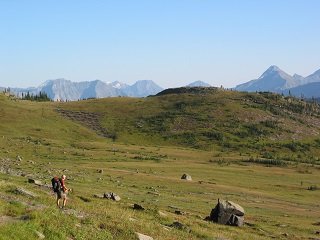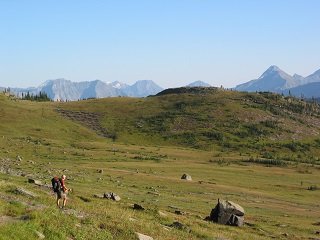 It’s unfortunate that news stories about lost hikers continue to be as common as they are today. More often than not, these incidents are the result of panic-induced absence of common sense, but what makes the situations worse is when the individuals involved set themselves up for failure before even leaving their homes. Keep reading for tips on how to make the necessary arrangements before setting forth on a backpacking trip.
It’s unfortunate that news stories about lost hikers continue to be as common as they are today. More often than not, these incidents are the result of panic-induced absence of common sense, but what makes the situations worse is when the individuals involved set themselves up for failure before even leaving their homes. Keep reading for tips on how to make the necessary arrangements before setting forth on a backpacking trip.
Obviously, you’ll want to make sure you have all of the equipment, clothing and food you’ll need for your trip. Use a checklist to ensure you don’t forget anything. You’d be surprised at how many people forget the most crucial items. It happens, but it doesn’t have to if you take the time to go through a checklist. Also, be sure you have all the paperwork you’ll need, including maps, reservations, parking permits and wilderness permits. It’s also smart to carry enough cash for emergencies, phone calls, or unexpected fees.
Now, aside from making sure you have everything you need, you’ll also want to give someone you trust a written copy of your trip plans. Your written trip plan should list your estimated time of departure, names, addresses and phone numbers of all group members, any medical conditions among the group, your vehicle’s make, model and license plate number, your planned route, camping sites, destination, and planned time of return. I’d also keep a copy of the trip plan in your vehicle. Plan to contact this person upon your return, just to let them know you made it back safely.
Know the conditions of the roads along which you’ll be travelling. If you’re unsure, contact local authorities to verify that your vehicle can handle the roads to your trailhead. If the route is isolated, unpaved or only seasonally maintained, contact a ranger, park manager or a local before you leave to make sure the route is accessible all the way to the trailhead.
Lastly, knowing how to navigate in the wilderness is of vital importance. If you’re unfamiliar with it, buy a compass and sign up for a navigation class before your trip. Also, it’s smart to familiarize yourself with reading a map, especially in correlation to a compass, so be sure to practice that, as well. Review the route for your trip in advance as often as you can. You’ll find that doing so will help you a lot.
For some, the tips outlined above may seem like a measure in redundancy, but there are hundreds and hundreds of people who either don’t know about them, or simply don’t practice them. It never hurts to get a little reminder.








